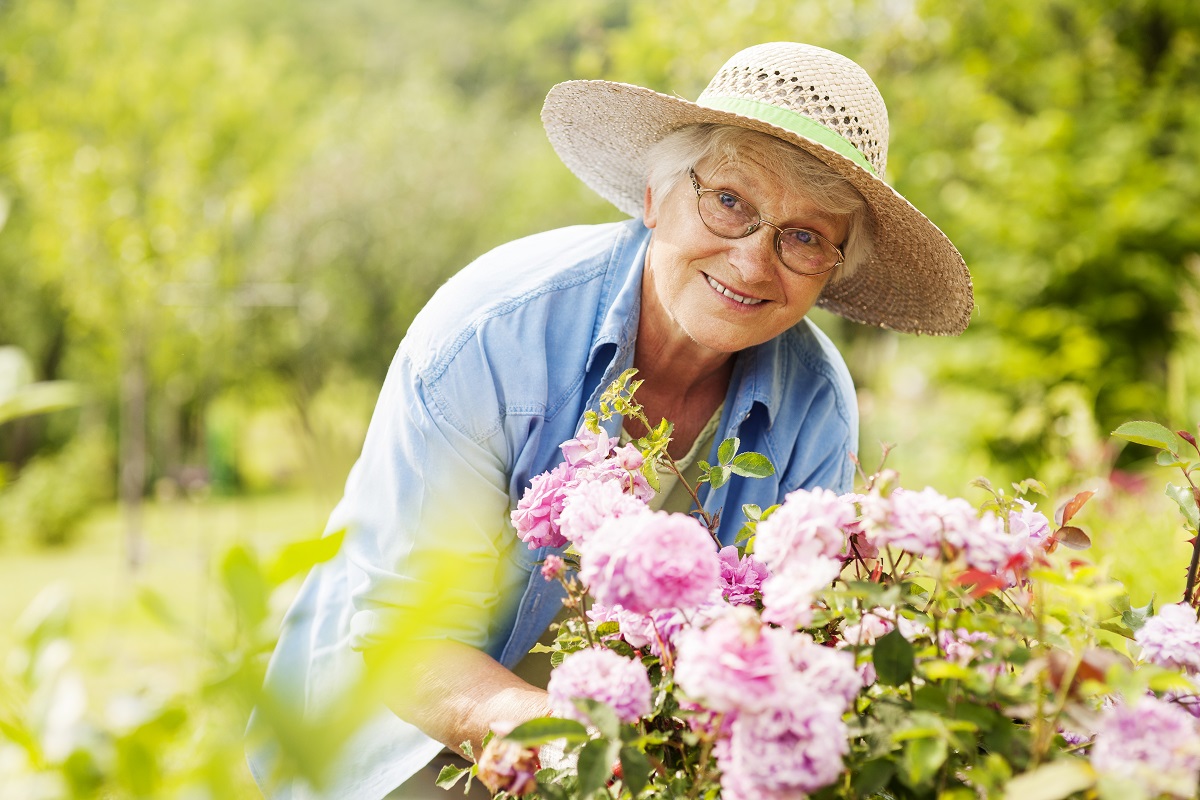Gardening not only produces edibles that help the food budget but provides many benefits to the elderly. Seniors who do it can reduce stress, fight depression, improve mobility, and get in their exercise for the day. The key is doing it safely with raised beds, lightweight equipment, and sun protection.
Gardening has many benefits no matter what your age. You can reap mental and physical health benefits, cost savings, and the potential to get healthier food into your body. Whether you are growing vegetables, fruits, or flowers, gardening is a fulfilling hobby worth considering.
With food prices in an inflationary spiral, being able to grow a few vegetables can save you a little money too.
Why Do Many Older People Enjoy Gardening?
Participating in gardening activities is a great way to stay young. Gardening is a rewarding experience that can give people a sense of purpose. Even if you have not gardened throughout your whole life, you may find that you very much enjoy horticultural therapy.
There are many benefits of gardening, encompassing everything from enjoying what you grow to social interaction if you are participating in a community garden.
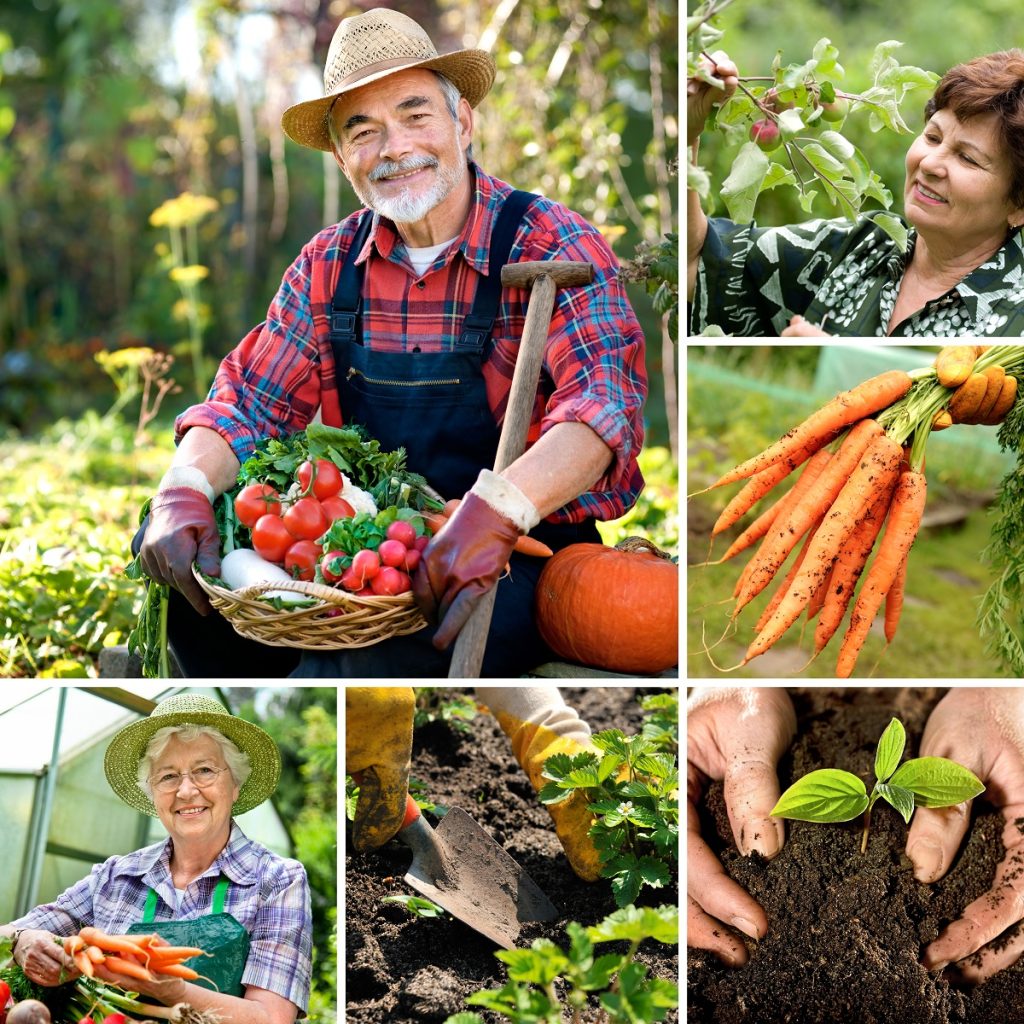
What Are The Benefits Of Elderly Gardening ?
1, Rewarding
Seeing the fruits of your labor is very rewarding, whether what you are reaping are literally fruits, colorful vegetables, or beautiful flowers.
2, Sense of Purpose
As people age, sometimes they start to feel like they are not as useful as they once were. Gardening can give a real sense of purpose.
3. Confidence Builder
Growing a vegetable garden or nurturing a flower bed can build confidence in people of any age.
4. Physical Movement
Physical activity is important even as we age. Gardening can offer movement that the person might not necessarily get otherwise. Even if you have limited mobility or are confined to a wheelchair, gardening can be set up for accessibility.
5. Physical Health Benefits
Gardening is good exercise that helps you keep fit. It befits your health in several ways.
- First, being outside allows you to get Vitamin D from the sunshine.
- Second, gardening lowers your blood pressure and can improve your quality of life.
- Studies in Sweden of 4,000 elderly over a 12-year period, where gardening is a favorite pastime of older adults, show that activities such as gardening lowered the risk of a heart attack or stroke by 27% and reduced the risk of death from all causes by 30%.
6. Mental Health Benefits
Completing gardening tasks can also improve your emotional and mental well-being and health. Studies even confirm that interaction with bacteria in the soil releases serotonin in the brain, which works as a natural anti-depressant.
Are There Dangers For The Elderly In Gardening?
There are dangers related to elderly people and gardening. People who are unsteady on their feet could struggle with walking or standing on the dirt. Here is where a more accessible garden is helpful.
Spending a lot of time outside can also increase your chances of skin damage or skin cancer, so wearing sunscreen is a must. Likewise, a lot of time in the sun can also be problematic for everyone, particularly older adults. Be careful when it is very hot outside.
Senior gardeners may tend to overdo it, especially as they labor to prepare the ground or do the weeding. Hiring someone to till the ground and even help with maintenance can remove some of the hard physical labor.
How Can I Make My Garden More Accessible For Elderly People?
Making a garden more accessible for older adults can enable them to do it for the long run. Senior gardening can take many forms. If you are creating a community garden for residents of a particular area, adding paved sidewalks between patches of the garden will make it easier for anyone in a wheelchair or using a walker to navigate. You can even do this for a large home garden.
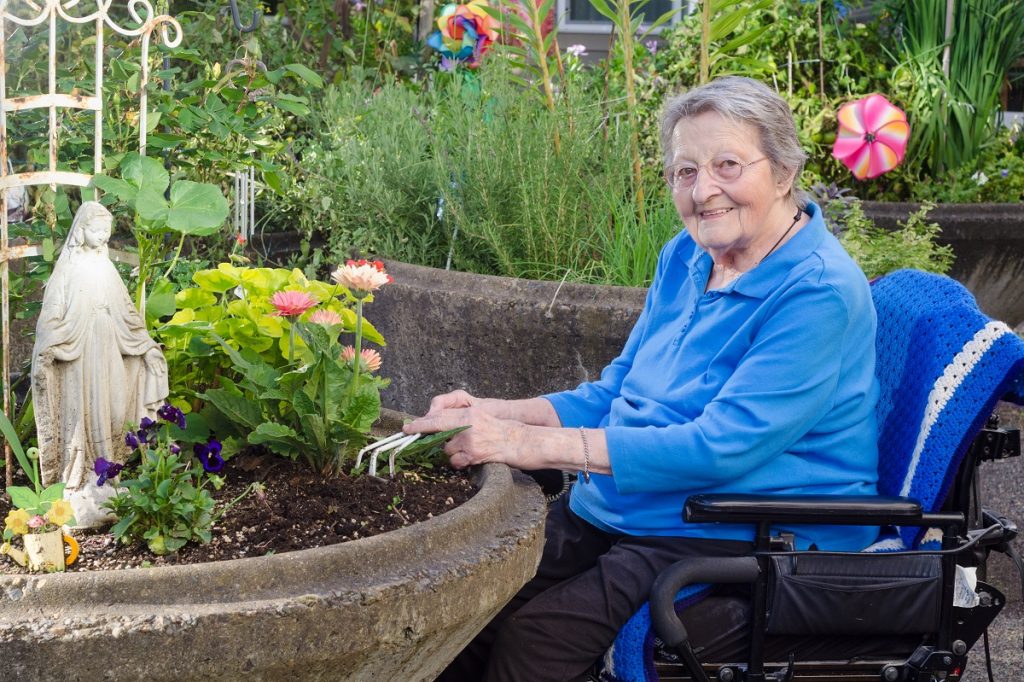
Raised garden beds are excellent for older gardeners because they do not have to kneel down or get onto the ground to dig in the dirt, weed, pick vegetables, or cut flowers. Hydroponic setups often use a vertical garden structure that can also be easier for older adults to work with.
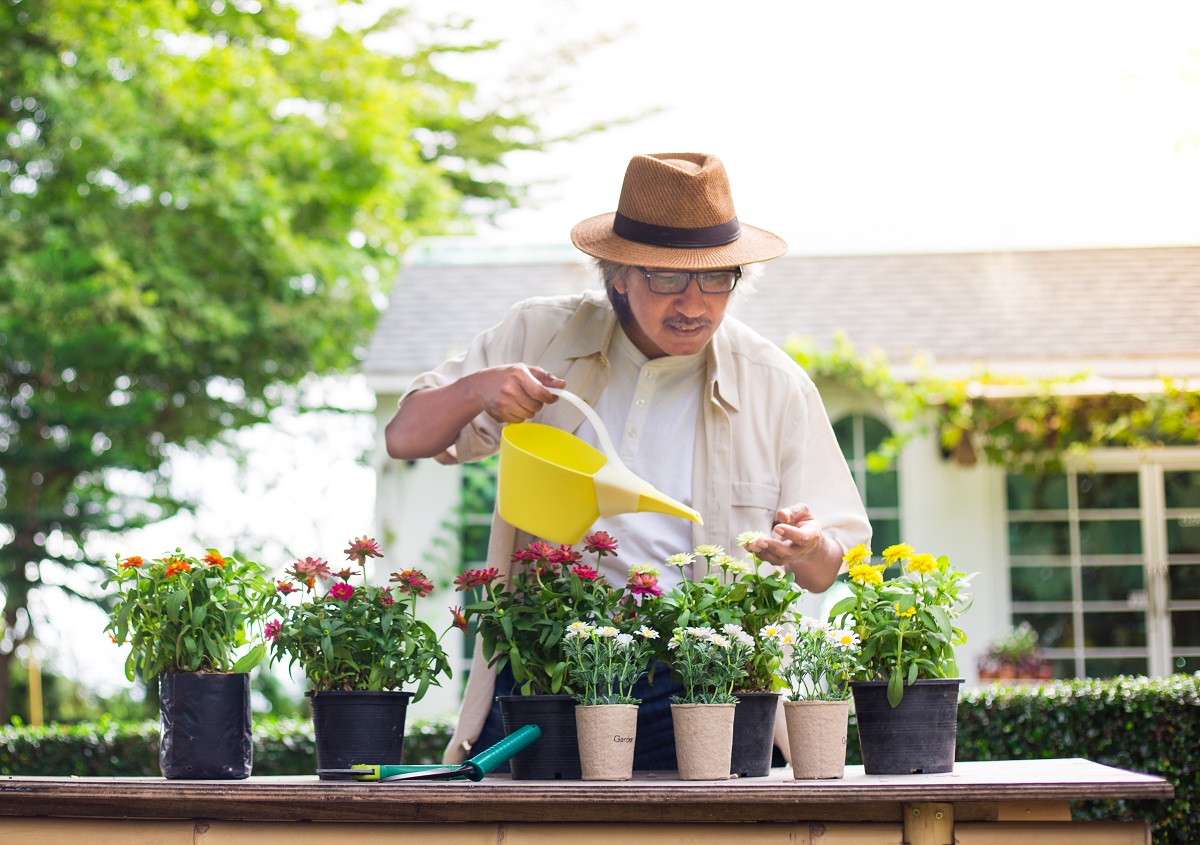
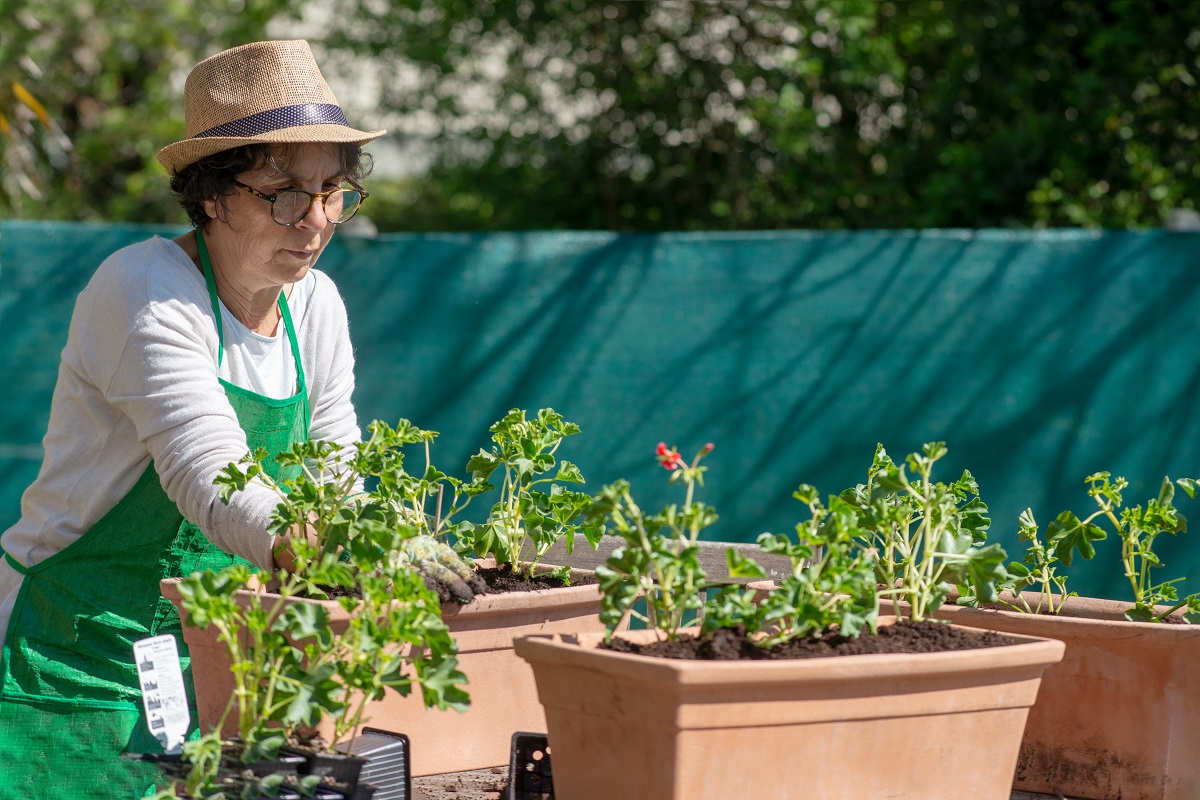
Plants can also be grown via container gardening, where you plant into buckets, flower pots, or other containers. You can also grow things in hanging baskets or on a windowsill if space is limited.
In other words, you do not need much garden space to make the most of things. Nor do you need to be a contortionist to be safe, comfortable, and effective with your gardening tasks
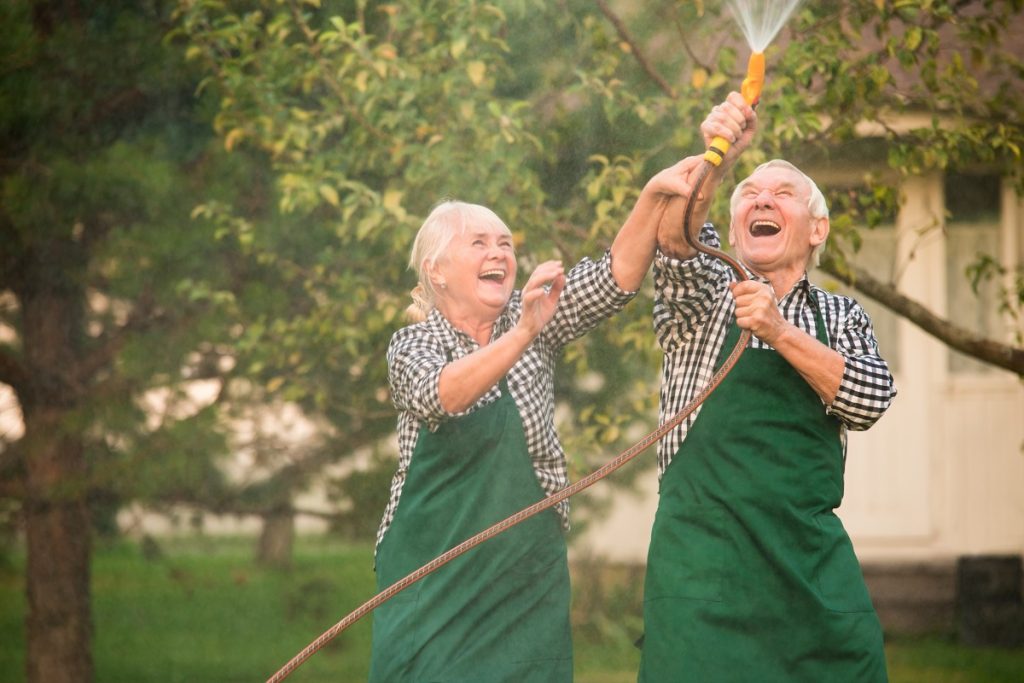
What Equipment Can I Use To Make Gardening Easier?
- Garden Kneelers: They make garden kneelers to help save your knees as you work in the garden. This is especially important for senior citizens, but all gardeners can benefit from this.
- Garden Bench: Installing nice garden benches can give you some place to sit while working in the garden. Many benches transform into different configurations, are very light, and are easy to move around.
- Gardening Gloves: Gloves protect your hands while working in the garden and handling dirt or mulch. An added benefit is the gloves protect your skin from sun exposure.
- Sunscreen: Anyone spending time outside should regularly wear sunscreen to protect their skin from damage.
- Watering Can: Caring for your garden requires water on a regular basis through hoses, irrigation, or a simple watering can. A watering can will do the job for a small space.
- Gardening Tools: Gardening tools that are small and easy to hang on to are excellent for senior citizens.
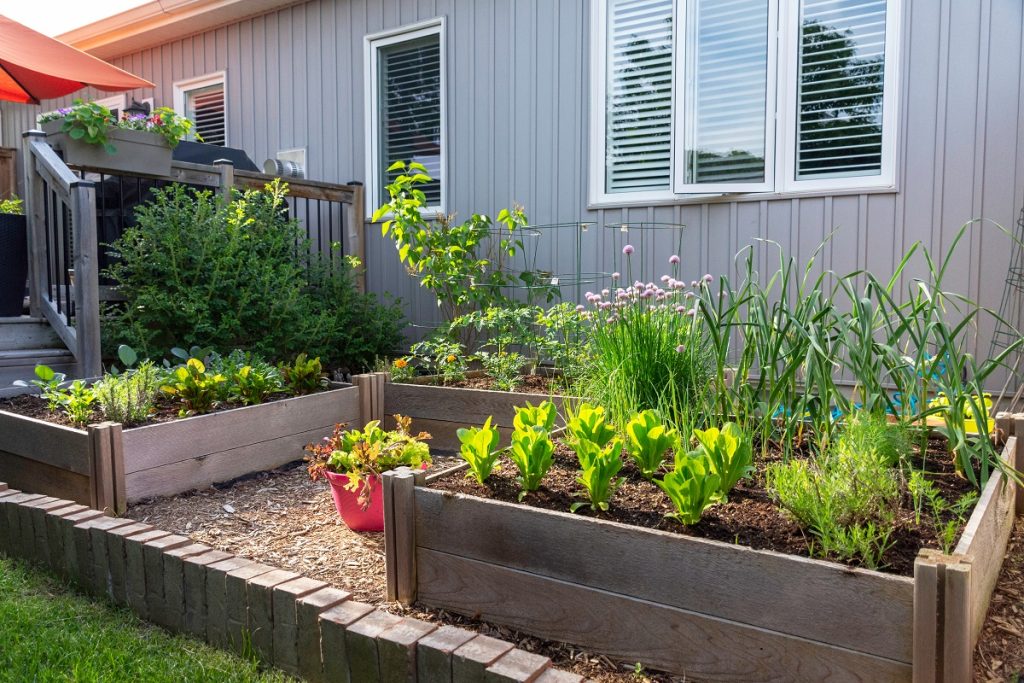
How Can My Elderly Loved One Get Help With Gardening?
Taking on a garden can be a major task for many seniors, but gardening can be done in a right-sized space.
Some senior care facilities offer gardening opportunities to keep the residents engaged, and some municipalities offer community gardens. Mom or dad can work on their own little area without the responsibility of an entire garden.
Tabletop gardening classes might be available that you and your family members find and try out.
If a regular garden seems like too much, you can plant a small herb garden right inside an apartment. Windowsills can have box planters on the outside to hold flowers or other plants. Large pots can grow tomatoes, etc. In other words, if your loved one loves plants, you can make it happen for them.
Gardening And Dementia Patients
Excellent research out there encourages people with Alzheimer’s disease and other forms of dementia to garden. The increased physical activity is good for all elderly people, in particular those with dementia.
Gardening also offers activity in a safe space. Sometimes retirement communities even boast a garden for the residents to putter around in.
What Are Some Gardening Tips For The Elderly?
Gardening tips for the elderly are similar to younger counterparts. However, those in their golden years should consider some additional things.
- Warm up and limber up. Don’t try to jump right into things without getting your body ready to work. Taking some time to slowly get moving helps prevent injury.
- Don’t try too much all at once. Sure, you may be motivated to turn that patch of land into a beautiful garden; however, if you do too much too soon, you might get hurt.
- Protect your hands and other exposed skin by wearing gloves, a long sleeve shirt, a hat with a brim, and sunscreen.
- Stay out of the sun during hot times of peak sunshine to prevent sun exposure and also to prevent heat exhaustion.
- Break any difficult tasks into small components and ask for help for daunting jobs.
- Keep access convenient and easy. If you have trouble bending over, try to get someone to help you with a raised garden.

